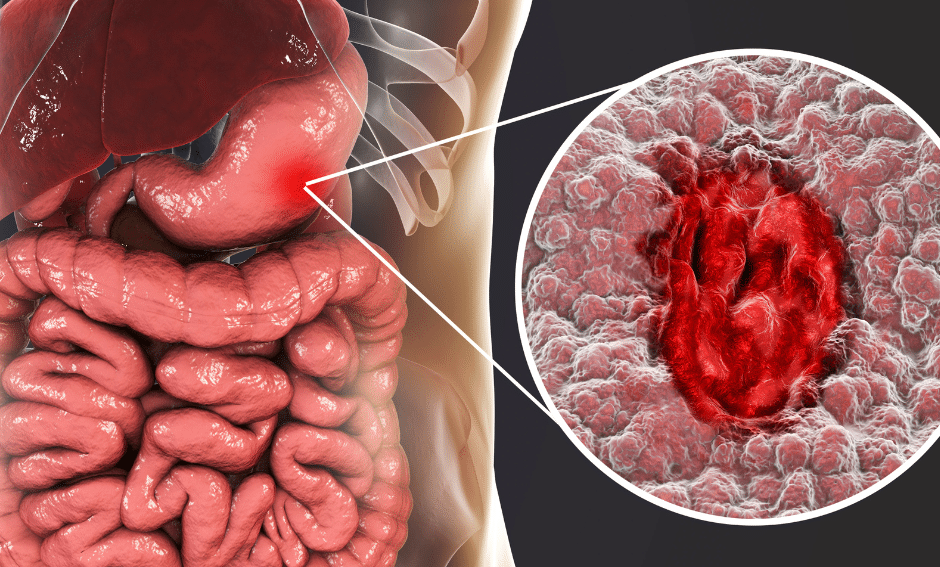Gastrointestinal (GI) Benefits of the Mediterranean Diet
 If you enjoy a salad made with colorful vegetables such as dark greens, tomatoes and carrots–all drizzled with olive oil—or a snack or dessert of fresh fruit—chances are you are doing your part to avoid GI cancers. That’s the strong evidence on studies regarding foods like these—part of the Mediterranean diet—and their effects on cancer prevention.
If you enjoy a salad made with colorful vegetables such as dark greens, tomatoes and carrots–all drizzled with olive oil—or a snack or dessert of fresh fruit—chances are you are doing your part to avoid GI cancers. That’s the strong evidence on studies regarding foods like these—part of the Mediterranean diet—and their effects on cancer prevention.
This is a topic close to the core philosophy of our practice at Digestive Healthcare Center, where we seek to educate our patients and the public on wellness and cancer prevention. Together with procedures such as cancer screening colonoscopy, diet and a healthy lifestyle is a major part of that educational effort.
The Mediterranean diet is a way of eating that is traditionally practiced by various cultures, and well publicized for its multiple health benefits, prominently heart health, but much more. This menu features foods traditionally eaten in Greece, Spain, southern Italy and France, and other countries that border the Mediterranean Sea. The Mediterranean diet emphasizes eating foods like fish, fruits, vegetables, beans, high-fiber breads and whole grains, nuts, and olive oil. Meat, cheese, and sweets are very limited. The recommended foods are rich with monounsaturated fats, fiber, and omega-3 fatty acids.
The most recent collected analyses of epidemiological studies support strongly the hypothesis that the Mediterranean diet may play a role in preventing several types of cancers, especially those of digestive tract. Specific aspects of the Mediterranean diet such as high fruit and vegetables and low red processed meat intake may explain such protective effects. Moreover, evidence regarding olive oil and whole grains increase the beneficial effects of such dietary patterns against cancer. The diet provides anti-inflammatory and antioxidant benefits as well as the benefits from its high-fiber content.
The diet has been associated with a 50 percent decrease in the risk of gastrointestinal (GI) tract cancers. GI cancers include cancers of the stomach, esophagus, small intestine, colon, rectum, and anus, as well as cancers of the pancreas, liver, gallbladder, and bile ducts inside and outside the liver.
One large study in Nutrition Reviews looked at almost 40,000 subjects over 20 years. Among its specific findings, olive oil decreased risk of colorectal cancers; whole grains decreased risk for stomach and colorectal cancers; vegetables reduced risk for epithelial cancer; and fruits decreased the risk for stomach and upper GI cancers. However, while evidence is quite substantial for gastrointestinal cancers, where data is reasonably consistent, some experts claim even more evidence is needed for colorectal cancer. (Although some speculate that the Mediterranean diet could decrease colorectal cancer rates by 25 rates.)
The Mediterranean diet’s health benefits have been studied by scientists for more than half a century. Shortly after World War II, Ancel Keys and colleagues, including President Eisenhower’s heart doctor, Paul Dudley White, initiated the Seven Countries Study to examine the impact of this diet. (Notably, Eisenhower had suffered a heart attack in 1955). This long-term study reviewed the health of nearly 13,000 men in the US, Japan, Greece, Italy, Finland, the Netherlands and the former Yugoslavia. Keys was responsible for the idea that heart disease wasn’t just the inevitable result of aging, but could be linked to poor nutrition.
Make an Appointment for Comprehensive Digestive Care in NJ
At Digestive Healthcare Center, we want each patient at our three offices in New Jersey to feel confident about their digestive health. We encourage you to contact us today to make an appointment with one of our expert gastroenterologists – don’t wait to start putting your digestive health first!
Recent Blogs
Learn more about all things digestive health and wellness by checking out our recent gastroenterology blogs.

Infusion therapy has become a vital treatment option for individuals with Crohn’s disease, offering relief when traditional medications may fall short. This method delivers medication directly into the bloodstream, providing quicker and more targeted effects to help manage inflammation, reduce symptoms, and improve quality of life. For those with moderate to severe Crohn’s disease, infusion […]

The Advancement of Ulcerative Colitis Treatment Ulcerative colitis (UC) is a chronic inflammatory bowel disease (IBD) that affects the lining of the colon and rectum. Those diagnosed with UC often experience flare-ups that can significantly impact their quality of life. Fortunately, advancements in medical treatment have made managing this condition more achievable. One option is […]

Diverticular disease and diverticulitis are related digestive health conditions that affect the large intestine (colon). With diverticular disease, small, bulging pockets develop on the lining of the colon. When these pockets become inflamed or infected, the condition is called diverticulitis. They are very common – especially after age 40 – and rarely cause problems. At […]
























